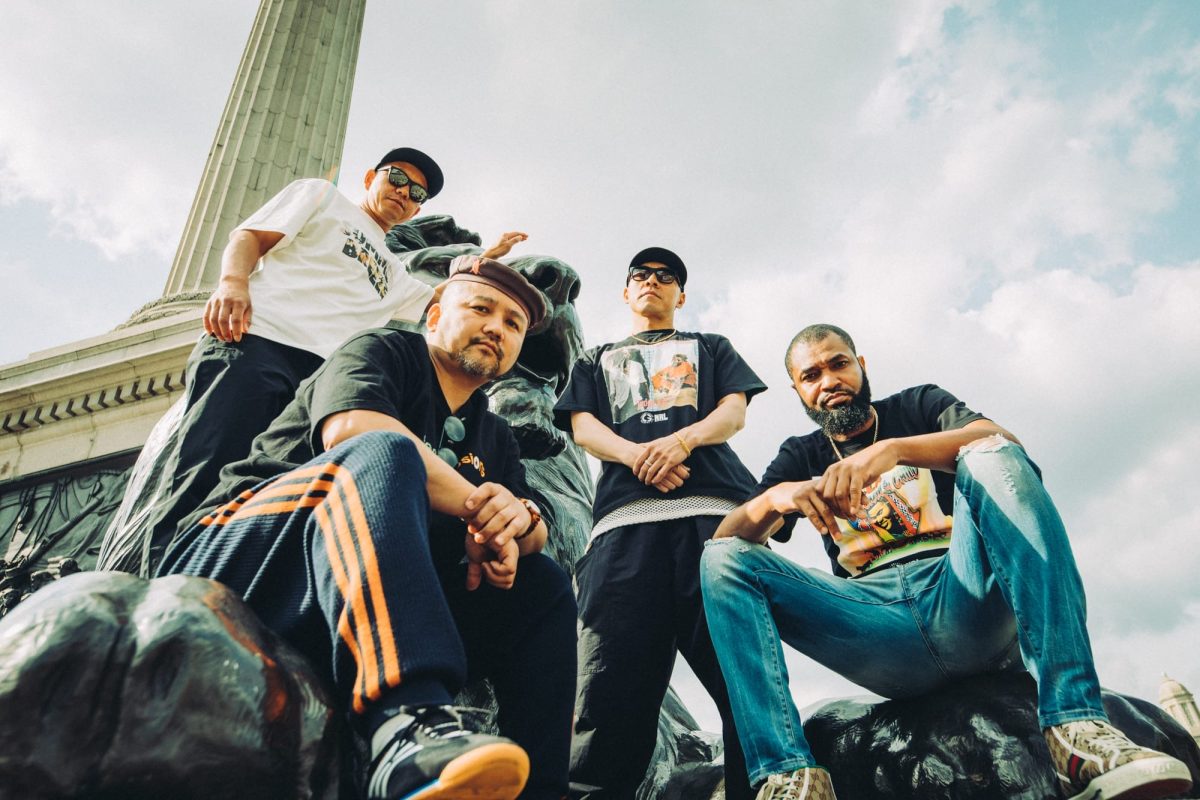Japan’s Mighty Crown Wants Other Asian Sounds To ‘Rise To The Occasion’

Japan’s Mighty Crown selectors have revealed that a major part of their decision to retire as sound system DJs after 32 years, is to enable other Asian sounds to ‘rise to the occasion’.
The point was made by selector Ninja Crown during an interview with The Gleaner at Reggae Sumfest, on the weekend, following their music session on the festival’s main stage.
“There are other Japanese sounds, other sounds in Japan that we want them a chance to highlight them and give them a platform to push themselves, so even though Mighty Crown won’t be there, other sounds will be from Japan with same vibes and everything,” he told The Gleaner.
According to The Gleaner, following their farewell on the Reggae Sumfest stage on Friday night, the trio had said that while they would no longer be spinning records, they would be going into other aspects of music such as production.
“We put a lot of work in, a lot of sacrifice, whole heap a hard work and thing, so we just decide seh after a while we taking a break. But we just taking a break from playing music. We’re not done with music, we have other things producing, and things doing but playing overall, we’re taking a little step back from that,” Ninja Crown is quoted as saying.
Selector Masta Simon also explained that the group “began to feel the wear and tear of the near three decades together”, prior to the COVID pandemic.
“We’ve been doing this a long time enuh, from 1991, like 32 years. So it’s like we gonna stop play sound but we’re not gonna stop Mighty Crown cause you know dancehall and reggae a we thing. So we gonna like change the formula and the chemistry,” he stated.
According to their biography, Mighty Crown was founded in 1991 in Yokohama, Japan and gradually became famous by playing at clubs and selling self-produced mix tapes throughout the country. After building their sound system in 1994, they began clashing with other Japanese sounds and became the undisputed and undefeated sound clash champion in Japan back in 1998).
“Since then, they have been influencing and leading the whole dancehall scene in Japan. Japan was not the only place they have been playing. From the first day they have started playing sound, Masta Simon and Sami-T, and other members of Mighty Crown always had a bigger aim, which was to bust their sound in foreign,” the bio notes.
The bio further states that the group of selectors moved to the US in the early 1990s and “gradually learned the Jamaican language and the dancehall flex by hanging out in studios, record shops, and in the streets of Brooklyn” in New York.
“They started playing at local clubs in Brooklyn and Manhattan around 1992 and eventually lead their way to the World Clash ’99 held in Brooklyn. On their first appearance in World Clash’99, they defeated sounds from Jamaica and the United States and became the first Japanese sound to get the World Clash trophy,” it adds.
Following that achievement, Mighty Crown began touring major cities in the United States such as New York, Miami, Tampa, Orlando, Atlanta, Houston, Boston, Washington DC, Virginia, Connecticut, New Jersey, as well as sections of the Caribbean, including Reggae land Jamaica, Antigua, Bermuda, Trinidad and Tobago, St. Lucia, Barbados and St Kitts.
They have also plied their musical trade in Europe, in places such as England, Germany and Switzerland.
The bio also describes Mighty Crown as having become very influential to the Reggae scene “due to their talent, ability, love, and devotion to the reggae music” and as “one of the sounds to prove to the world that reggae music is an international music” for the people worldwide.
In speaking of Mighty Crown’s business successes spurred by the music, the bio notes that: “Today, Mighty Crown has become the household name not only in Japan but throughout the dancehall scene worldwide. They have been promoting reggae music in Japan in different type of forms”.
“They have been playing on radio show every Saturday, clubs, concerts, appearing on TV shows, establishing their own record label named “Lifestyle Records,” promoting dances, producing a clothing line called “Nine Rulaz,” and establishing a Japanese dancehall free paper magazine called, Strive,” it adds.
